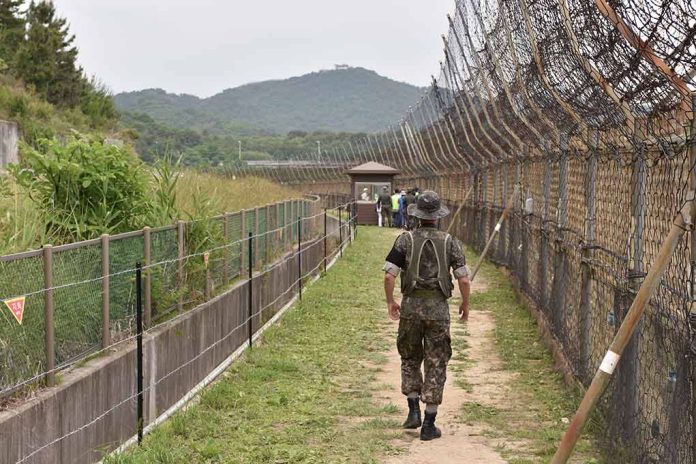
North Korea has issued a stark threat of retaliation in response to US-South Korea joint military exercises involving B-1B bombers.
Key Takeaways
- North Korea threatened retaliation after the US flew B-1B bombers over South Korea during a joint training exercise.
- The drill coincided with the 113th anniversary of Kim Il Sung’s birthday, increasing tensions.
- North Korea perceived the drill as an invasion rehearsal and described it as a threat to its security.
- North Korea is particularly wary of US long-range bombers, aircraft carriers, and nuclear-powered submarines.
- North Korea has threatened retaliation following a joint air drill by the United States and South Korea.
Military Exercises and Increasing Tensions
The United States and South Korea conducted a joint aerial exercise involving B-1B bombers, marking a significant boost in their military collaboration. These drills came at a poignant time—for North Korea, the exercises coincided with the 113th anniversary of Kim Il Sung’s birthday, seen as a provocative act by Pyongyang. Kim Il Sung, revered as the founding leader, is a symbol of nationalism and resilience for many North Koreans.
North Korea has labeled this military maneuver as an “aggressive attempt to permanently fix the malignant instability element in the security environment of the region.” The usage of US long-range bombers and other military assets in the drill underscores the increased defensive readiness on the Korean Peninsula.
North Korea’s Official Stance
North Korea’s Defense Ministry has voiced strong objections, describing the US deployment of bombers as “reckless bluffing” and a deliberate provocation to increase regional tension. The North perceives these exercises as rehearsals for an invasion, which gravely threaten the security state of North Korea. The North Korean government often views such military actions as acts of aggression aimed at destabilizing its regime.
“The recent military move of the US and the Republic of Korea [South Korea] is an open threat to the security of our state and a grave provocation that raises the military tension in the region to an extremely dangerous level,” per the KCNA.
As a pattern of response, North Korea has historically conducted missile tests following such exercises to demonstrate its military capabilities. The relationship between North Korea and its southern neighbor remains fraught with mistrust amidst Pyongyang’s advancements in missile technology and nuclear capabilities.
South Korea and US Perspective
South Korea’s Defense Ministry justified the joint drills, stating they are routine, essential for maintaining a strong defense posture, and crucial for deterring threats from the North’s nuclear advancements. The “Freedom Flag” drill’s inaugural session will occur twice yearly, involving 90 fighter jets and various other military assets from both countries, outlining a clear commitment to uphold security on the Peninsula.
The US-South Korea partnership continues to be a formidable counterbalance to North Korea’s persistent military provocations. However, tensions are exacerbated due to Pyongyang’s support for Russia in the Ukraine conflict and its ongoing weapons tests, a development closely monitored by the global community.




